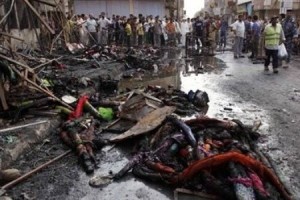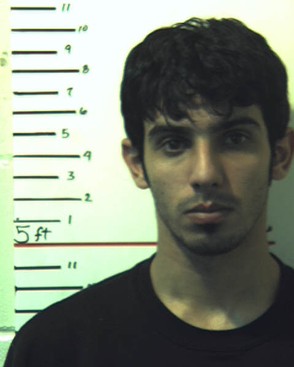
JIDDA, Saudi Arabia — It is an architectural absurdity. Just south of the Grand Mosque in Mecca, the Muslim world’s holiest site, a kitsch rendition of London’s Big Ben is nearing completion. Called the Royal Mecca Clock Tower, it will be one of the tallest buildings in the world, the centerpiece of a complex that is housing a gargantuan shopping mall, an 800-room hotel and a prayer hall for several thousand people. Its muscular form, an unabashed knockoff of the original, blown up to a grotesque scale, will be decorated with Arabic inscriptions and topped by a crescent-shape spire in what feels like a cynical nod to Islam’s architectural past. To make room for it, the Saudi government bulldozed an 18th-century Ottoman fortress and the hill it stood on.
The tower is just one of many construction projects in the very center of Mecca, from train lines to numerous luxury high-rises and hotels and a huge expansion of the Grand Mosque. The historic core of Mecca is being reshaped in ways that many here find appalling, sparking unusually heated criticism of the authoritarian Saudi government.
“It is the commercialization of the house of God,” said Sami Angawi, a Saudi architect who founded a research center that studies urban planning issues surrounding the hajj, or pilgrimage to Mecca, and has been one of the development’s most vocal critics. “The closer to the mosque, the more expensive the apartments. In the most expensive towers, you can pay millions” for a 25-year leasing agreement, he said. “If you can see the mosque, you pay triple.”
Saudi officials say that the construction boom — and the demolition that comes with it — is necessary to accommodate the ever-growing numbers of people who make the pilgrimage to Mecca, a figure that has risen to almost three million this past year. As a non-Muslim, I was not permitted to visit the city, but many Muslims I spoke to who know it well — including architects, preservationists and even some government officials — believe the real motive behind these plans is money: the desire to profit from some of the most valuable real estate in the world. And, they add, it has been facilitated by Saudi Arabia’s especially strict interpretation of Islam, which regards much history after the age of Muhammad, and the artifacts it produced, as corrupt, meaning that centuries-old buildings can be destroyed with impunity.
That mentality is dividing the holy city of Mecca — and the pilgrimage experience — along highly visible class lines, with the rich sealed inside exclusive air-conditioned high-rises encircling the Grand Mosque and the poor pushed increasingly to the periphery.
There was a time when the Saudi government’s architecture and urban planning efforts, especially around Mecca, did not seem so callous. In the 1970s, as the government was taking control of Aramco, the American conglomerate that managed the country’s oil fields, skyrocketing oil prices unleashed a wave of national modernization programs, including a large-scale effort to accommodate those performing the hajj.
The projects involved some of the world’s great architectural talents, many of whom were encouraged to experiment with a freedom they were not finding in the West, where postwar faith in Modernism was largely exhausted. The best of their works — modern yet sensitive to local environment and traditions — challenge the popular assumption that Modernist architecture, as practiced in the developing world, was nothing more than a crude expression of the West’s quest for cultural dominance.
These include the German architect Frei Otto’s remarkable tent cities from the late 1970s, made up of collapsible lightweight structures inspired by the traditions of nomadic Bedouin tribes and intended to accommodate hajj pilgrims without damaging the delicate ecology of the hills that surround the old city.
Fifty miles to the west, Skidmore, Owings & Merrill’s Hajj terminal at King Abdul Aziz International Airport is a similar expression of a form of modernity that can be sensitive to local traditions and environmental conditions without reverting to kitsch. A grid of more than 200 tentlike canopies supported on a system of steel cables and columns, it is divided into small open-air villages, where travelers can rest and pray in the shade before continuing their journey.
The current plans, by contrast, can read like historical parody. Along with the giant Big Ben, there are many other overscale developments — including a proposal for the planned expansion of the Grand Mosque that dwarfs the original complex — in various mock-Islamic styles.
But the Vegas-like aura of these projects can deflect attention from the real crime: the way the developments are deforming what by all accounts was a fairly diverse and unstratified city. The Mecca Clock Tower will be surrounded by a half-dozen luxury high-rises, each designed in a similar Westminster-meets-Wall Street style and sitting on a mall that is meant to evoke traditional souks. Built at various heights at the edge of the Grand Mosque’s courtyard, and fronted by big arched portes-cocheres, they form a postmodern pastiche that means to evoke the differences of a real city but will do little to mask the project’s mind-numbing homogeneity.
Like the luxury boxes that encircle most sports stadiums, the apartments will allow the wealthy to peer directly down at the main event from the comfort of their suites without having to mix with the ordinary rabble below.
At the same time, the scale of development has pushed middle-class and poor residents further and further from the city center. “I don’t know where they go,” Mr. Angawi said. “To the outskirts of Mecca, or they come to Jidda. Mecca is being cleansed of Meccans.”
The changes are likely to have as much of an effect on the spiritual character of the Grand Mosque as on Mecca’s urban fabric. Many people told me that the intensity of the experience of standing in the mosque’s courtyard has a lot to do with its relationship to the surrounding mountains. Most of these represent sacred sites in their own right and their looming presence imbues the space with a powerful sense of intimacy.
But that experience, too, is certain to be lessened with the addition of each new tower, which blots out another part of the view. Not that there will be much to look at: many hillsides will soon be marred by new rail lines, roads and tunnels, while others are being carved up to make room for still more towers.
“The irony is that developers argue that the more towers you build the more views you have,” said Faisal al-Mubarak, an urban planner who works at the ministry of tourism and antiquities. “But only rich people go inside these towers. They have the views.”
The issue is not just run-of-the-mill class conflict. The city’s makeover also reflects a split between those who champion turbocharged capitalism and those who think it should stop at the gates of Mecca, which they see as the embodiment of an Islamic ideal of egalitarianism.
“We don’t want to bring New York to Mecca,” Mr. Angawi said. “The hajj was always supposed to be a time when everyone is the same. There are no classes, no nationalities. It is the one place where we find balance. You are supposed to leave worldly things behind you.”
The government, however, seems unmoved by such sentiments. When I mentioned Mr. Angawi’s observations at the end of a long conversation with Prince Sultan, the minister of tourism and antiquities, he simply frowned.
“When I am in Mecca and go around the kaaba, I don’t look up.”
 Several Iraqi authorities have accused Saudi Arabia of supporting terrorist attacks in the war-wrecked country, which run by the Shia-led government.
Several Iraqi authorities have accused Saudi Arabia of supporting terrorist attacks in the war-wrecked country, which run by the Shia-led government.

























